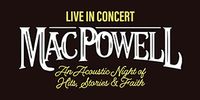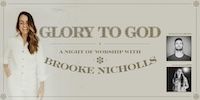Swan Lake First Nation Elder Dave Scott has many roles in the community in addition to being an elder. He is a Spiritual Leader, a historian and Indigenous Environmental Expert. He advises council and programs on environmental laws and policies that impact Indigenous people. His first law is to look at all people as human beings first and has dedicated his life to rebuilding relationships between Indigenous and non-Indigenous people, especially youth.
This portion of the interview focuses on the history between Indigenous people and the Mennonite community when they first settled in Canada in the 1800s.
Scott provided the rarely-heard Indigenous perspective and explained why this is important.
"We have the Western writings of history, in the absence of Indigenous history, and it makes a big difference when you put those two histories together. And sometimes it shocks people to know what we were like back then and how we were welcoming and helpful to those that came to this area. Somewhere along the way, we went into the ditch and decided to separate from one another."
He explained how the two groups came together.
"There's a really deep history here with the Ojibwe people and all those settler populations, and in particular the Mennonite community. Being a pacifist community, our people felt secure in sharing information. We called them, I think the terminology people are using is, handshake treaties. See, a lot of those interactions between Indigenous and non-Indigenous people have to be done in secret because non-Indigenous people could not deal with Indigenous people. They could lose their rights here in Canada because they were all immigrants, and they were coming here to farm and stuff like that. They could be sent away if you were dealt directly with Indigenous people."
When asked what broke down the relationship, he replied the Indian Act was put in place 'to civilize the Indian.' Which was followed by years of attempting to abolish the Indigenous culture, languages and identity.
"They created the reserve system, separating land or giving land out to people that were disadvantaged, including the Indigenous people. The Mennonites got the Eastern Reserve, which is in the Steinbach area, and then the Western Reserve, which is Altona Winkler, Morden area. What happened there was the Mennonites got more land than us and better-quality land. And then that treaty was broken there, and they said we can't trust them. And I mean, it wasn't that we didn't trust the Mennonites. It was that we didn't trust the Federal Crown. "
Swan Lake First Nation is celebrating National Indigenous People's Day with a feast, a Pow Wow, fashion show and hand drumming contest.
When asked to look into the future and describe a brighter day, Scott chuckled at the thought of a perfect world and then shared his heart.
"I want my child to hold his head up when he meets your children and I want him to shake hands. I don't want to see our children walk by white kids now with their heads down and act in a shameful way. That's the beautiful world I see. And it's through this kind of work that I do that's always my vision is to see. So that may be perfect, but let's be human beings first. That's the way I look at it, and that's what I hope that our communities can get to."
A National Indigenous Day Celebration will take place Saturday in Morden, hosted by the Truth and Action Working Group.














